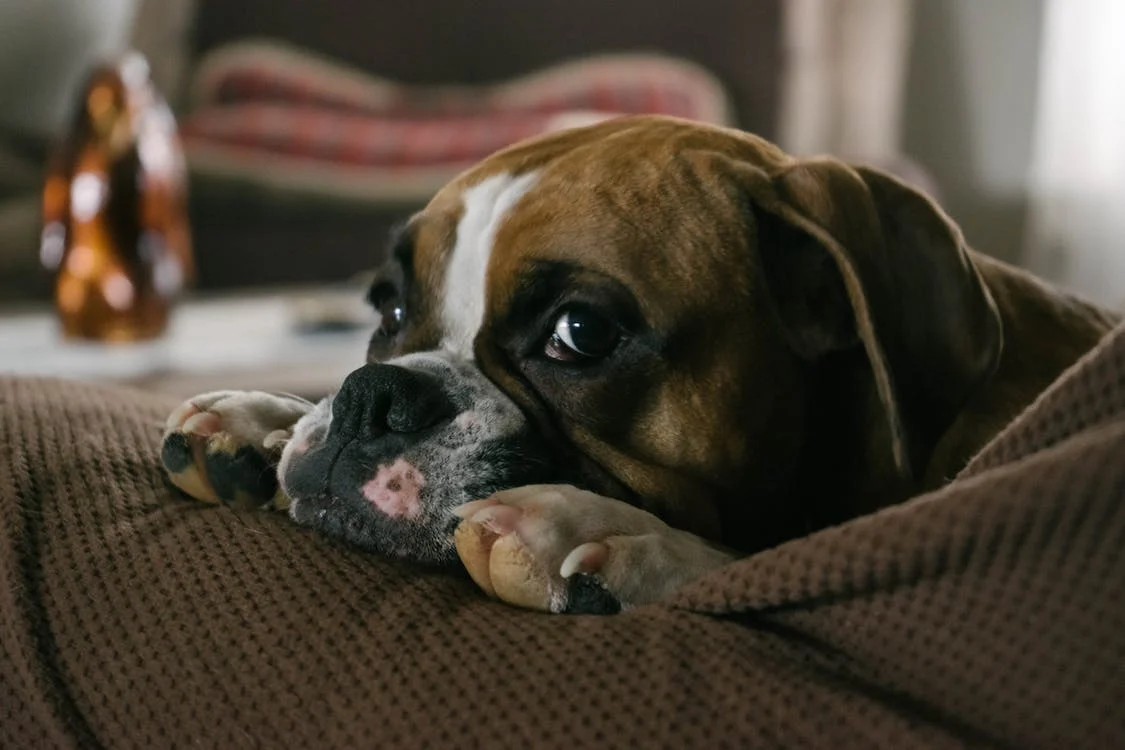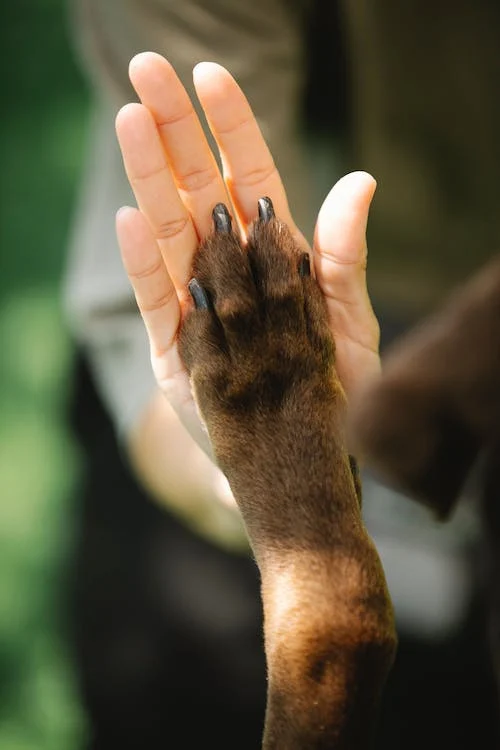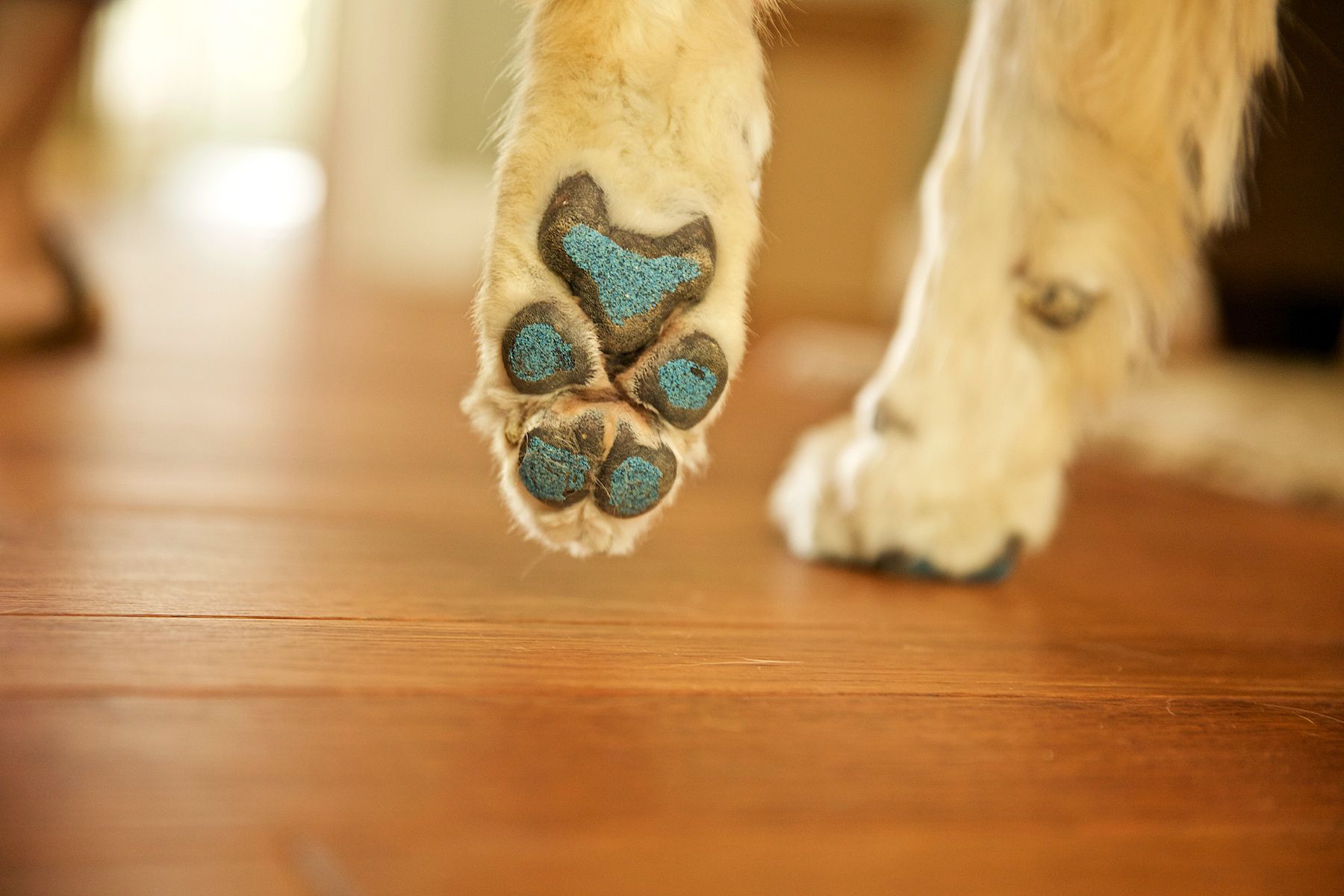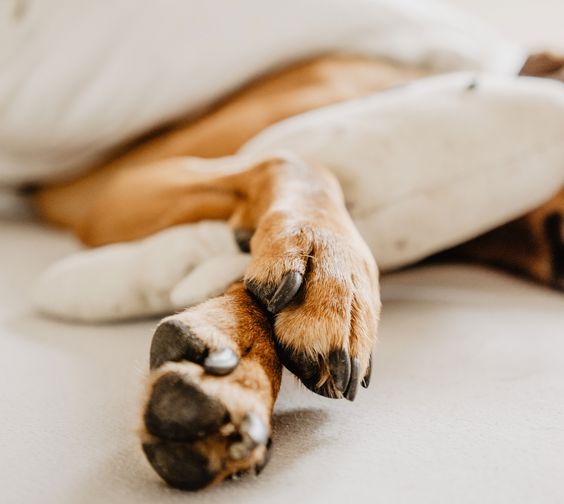Does your dog excessively lick, chew, or bite at their paws? This common behavior may look silly or obsessive, but it usually signals underlying issues dogs can’t resolve alone. Determining what drives paw licking helps you address the root problem to give your dog relief.
Keep reading to learn about the most common reasons behind dogs incessantly licking paws and steps you can take to help.
It Soothes Pain or Irritation
The most straightforward reason dogs lick their paws stems from pain, irritation, inflammation, or injury between their toes, on footpads, or around nail beds. Moistening painful spots with saliva brings temporary soothing relief, just like putting a hurt finger in your mouth would.
Common causes of paw irritation and discomfort include:
- Scrapes, cracks, or cuts
- Bee stings, spider bites, or blisters
- Hot spots or infected hair follicles
- Plant awns or grass seeds stuck between toes
- Torn nails or painful ingrown nails
- Food allergies manifesting as itchy skin
- External parasites like mites causing mange
If you notice wounds or irritation between toes, anatomical problems with nail alignment, raw pads, limping, or other signs of injury when your dog excessively licks paws, schedule a veterinary exam. Treating underlying issues brings the relief that stops obsessive licking behavior.

They’re Trying to Clean Their Paws
Dogs also incessantly lick dirty paws in order to clean irritating debris or residue stuck between their toes or pads after walking outside. Think about how you might pick pebbles from a shoe or sand off feet. Licking serves the same function for dogs.
On sidewalks, roads, gravel paths, grassy lawns, muddy trails, and more, dogs’ paws easily pick up:
- Dirt, mud, sand, soil
- Grass seeds or foxtails
- Salt, ice melters, chemicals
- Sap, pollen, pitch, stickers
- Feces, urine, germs
Excess paw licking often signals a pup just trying to clean messy feet after walks or playtime outside. Check for debris caught between paw pads or toes whenever this behavior strikes post-activity.
Some dogs habitually bite and lick clean ritualistically after coming inside too. If paw pads appear irritated or inflamed from determined cleaning attempts, try dog shoes or musher’s wax to protect feet outside.

It Manifests Stress, Anxiety, Boredom
Incessant paw licking unrelated to visible injury or unclean debris hints at psychological distress. Anxiety, boredom, fearfulness, compulsion disorders and stress all commonly manifest as oral fixation tail chasing, nail biting, and repetitive licking.
Dogs also intuitively lick wounds applying healing enzymes in saliva. So excessive, unproductive licking habits often surface as displacement behaviors when underlying emotional unrest cannot heal.
Paw chewing and licking specifically can signal:
- Separation anxiety
- Confinement distress
- Insufficient physical/mental stimulation
- Changes causing insecurity like new home, pet, baby
- Trauma from abuse, neglect, or accidents
- Storm phobia, fireworks fear, travel nausea
- Skin irritation from stress-induced allergies
If your dog seems obsessed with chewing paws only during certain triggers like your departure, changes in routine, or high-stress events, the behavior likely links to psychological issues. Note patterns about when paw licking occurs. Working to resolve the underlying emotional unrest then alleviates this stress response.

How to Stop Dogs Excessive Paw Licking
Depending on what drives the desire for canine foot chewing, steps may include:
- Checking for and treating wounds, dermatitis or parasites
- Removing debris and drying feet after outdoor play
- Adding mental stimulation through meals, toys, training
- Preventing boredom with walks, play time, affection
- Managing anxiety triggers using conditioning and medication
- Discouraging licking through distraction and bad taste deterrents
- Using calming supplements, pheromones, routine maintenance
- Improving diet to resolve allergies causing itchy paws
Veterinary guidance tailors treatment plans specific to underlying causes. Some compulsive paw licking signals psychological unrest or dermatological problems warranting medicated solutions.
Getting to the root of why your dog incessantly licks paws takes some patience and detective work. But once underlying triggers get addressed through veterinary care, the quality of life for both you and dog greatly improves. Paw health and emotional wellbeing go hand in hand!

Common Questions About Dogs Licking Their Paws
Q: Can excessive paw licking indicate food allergies?
A: Yes, dogs manifest skin irritation and itching from food, seasonal, or skin-contact allergies through obsessively biting, licking, chewing feet. An elimination diet trial helps diagnose allergies.
Q: What home remedies soothe irritated paw pads?
A: Gently cleanse with veterinarian-recommended soap and apply cold compress for 10 minutes to reduce inflammation. Always seek underlying cause diagnosis too. Don’t just mask symptoms.
Q: Why does my dog only bite their back paws?
A: Hind legs extend furthest so likely contact more irritants but also prove hardest for dogs to self-inspect. Paw chewing signals an attempt to reach. Look closely for sources of discomfort dogs struggle to bite or lick directly.
Q: Is my anxious dog’s paw licking a form of OCD?*
A: Yes, anxiety and boredom commonly manifest as obsessive paw licking and tail chasing. Veterinary behaviorists help diagnose and treat compulsion disorders through training, medication, and environmental enrichment tactics.
Knowing what triggers your dog’s need to incessantly lick paws directs solutions to the root problem. Seek veterinary guidance to get relief and improve wellbeing for both dog and owner. Healthy paws start from the inside out!

